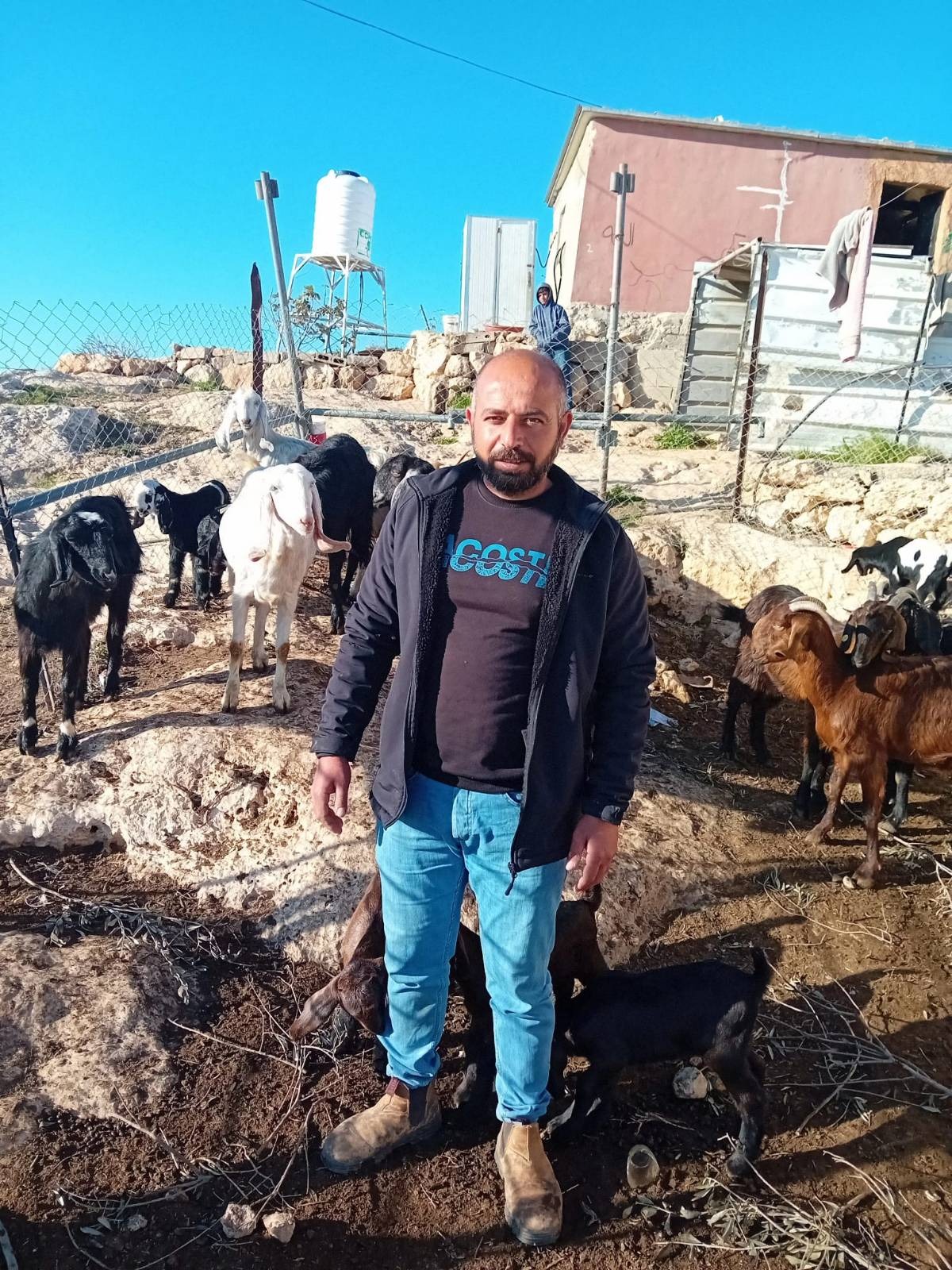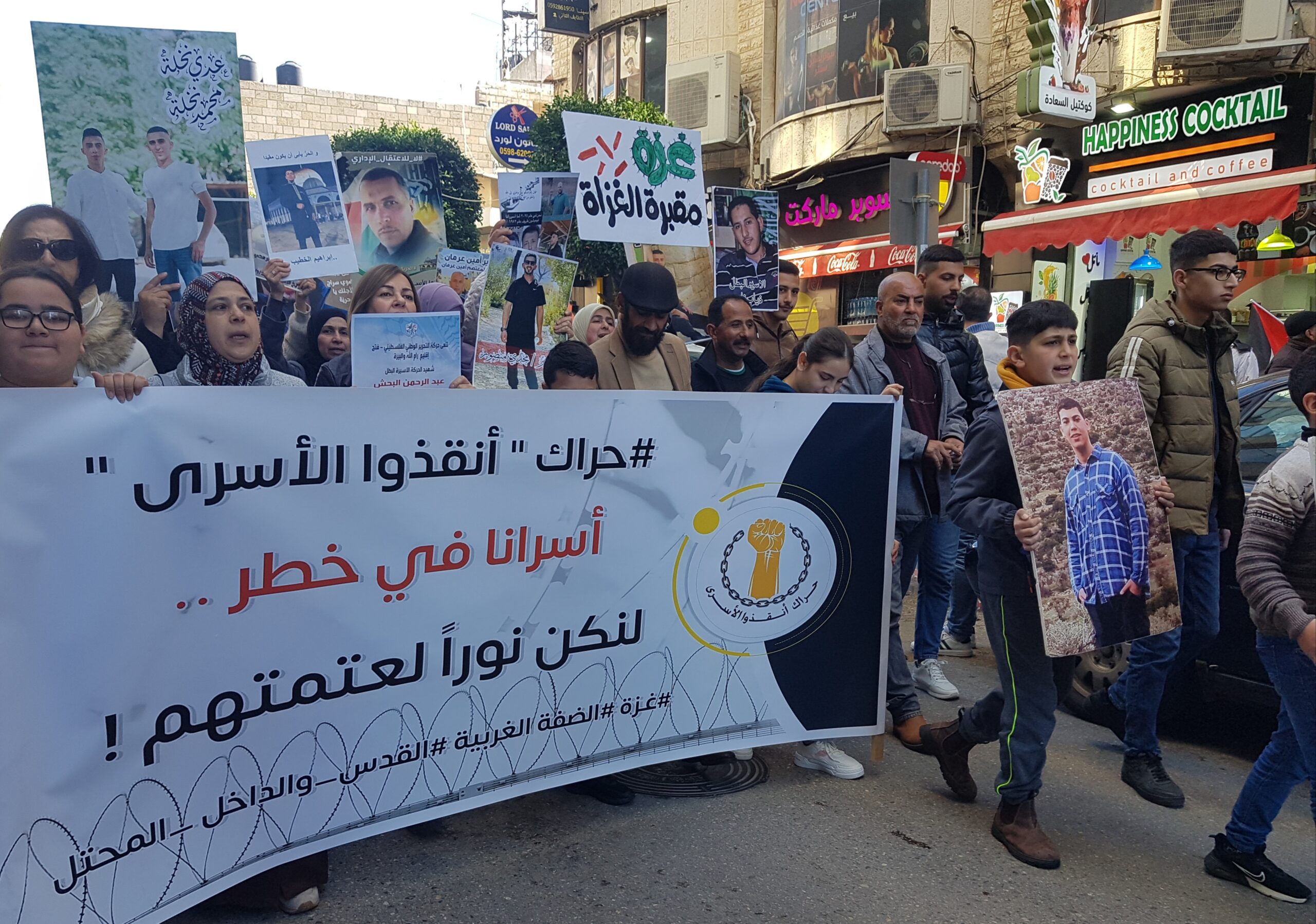-
When Shepherding Your Flock Becomes a Crime
16 January 2024 | International Solidarity Movement | Masafer Yatta Muhammed being led away by IOF soldiers. Credit: ISM. For the villagers of Khallet Al Dabaa, in Masafer Yatta, shepherding is a traditional way of life. One which they have followed on their traditional lands in the West Bank’s South Hebron Hills since Ottoman […]
-
Urgent Call from Palestinian Prisoner Families
The International Solidarity Movement (ISM) has been approached by the “Movement to Save the Prisoners” with an urgent request to highlight the current crisis faced by Palestinian prisoners in Israeli jails.
-
Suffer the Children
I am still perpetually on the verge of crying or crying most of the time. Throughout my travels in Palestine, I have learned from the wisdom of children.
Action Alert An Nabi Saleh Apartheid Wall Arrests BDS Bethlehem Bil'in Cast Lead Demonstration Denial of Entry Ethnic Cleansing Farmers Gaza Global Actions Hebron House Demolition International law Israeli Army Jerusalem Live Ammunition Nablus Ni'lin Prisoner Ramallah Rubber-coated steel bullets Settlement Settlers Settler violence Tear-Gas Canister Video



